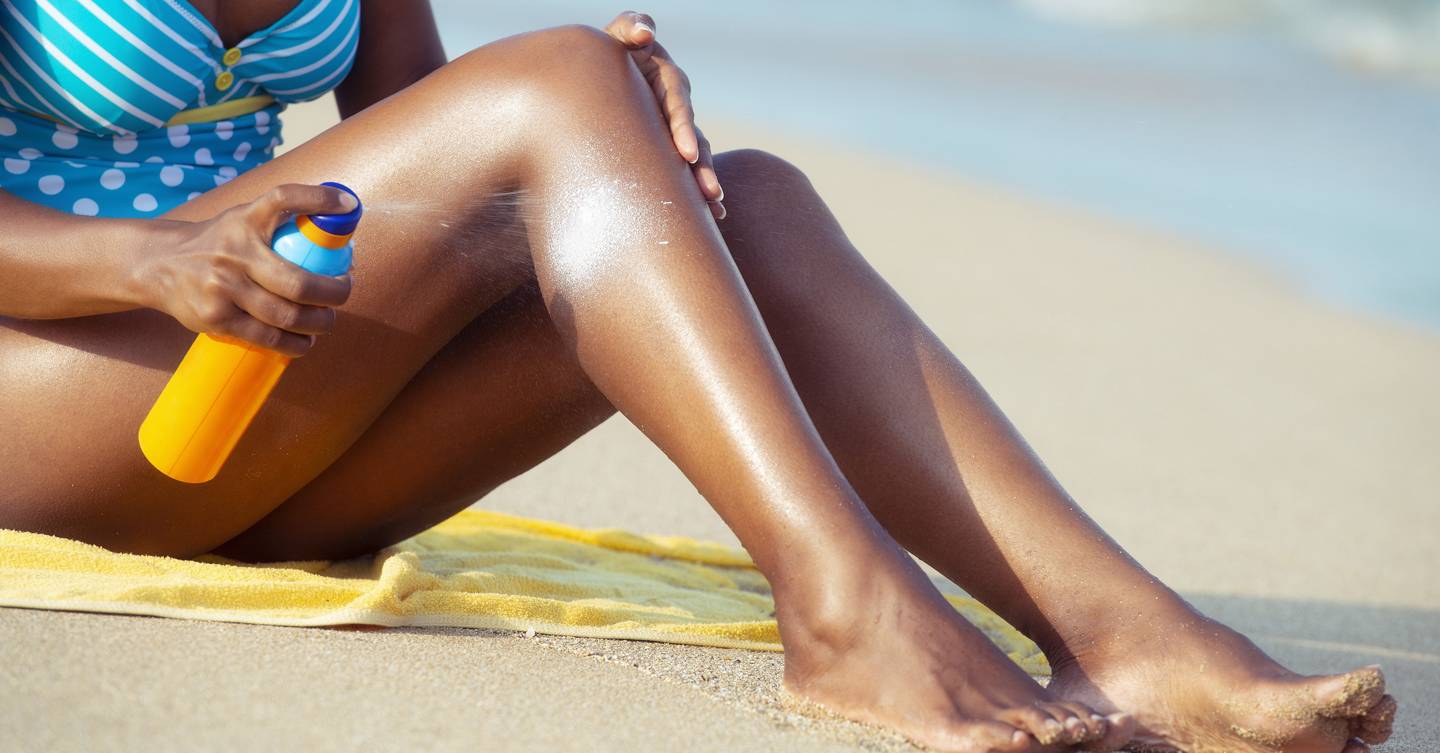Just when will the suncare market become more representative?


Why is it that when it comes to sunscreen, we immediately think of lightly honeyed limbs growing golden in the sun? Of pale-skinned Brits abroad getting pinker by the day and of sun hat clad caucasian women dipping their toes in the edge of the pool? Where, in the midst of these images, are women of colour represented?
Its an issue thats long plagued the beauty industry. From the Nivea advert that showed a black woman transforming into a white woman to magazines editing out black hair on their covers, women of colour have been under and misrepresented for years. But along with simply failing to address their needs, the exclusion of women of colour from the suncare market is having much wider-reaching ramifications.
Why is makeup for black women so damn expensive?
Advertisement
“The lack of engagement from suncare brands and even health professionals is a form of symbolic annihilation (the process whereby if you dont see representation of yourself, you assume that it doesnt apply to you),” explains Dija Ayodele, leading aesthetician and founder of the Black Skin Directory, a platform set up specifically to address the skincare needs of women of colour in the UK. “There is ignorance in the black community about the need for sun protection or even how you should protect your skin in the sun,” she says, but its down – quite significantly – to beauty brands failing to direct crucial education towards darker skin tones.
“The suncare market predominantly educates the white public about UVB damage,” says Ayodele, since lighter skin tones are more likely to develop avoidable sunburn, which can lead to skin cancer and mortality. As for UVA, “the message largely goes uncommunicated unless you are talking to a skincare professional,” she says. “Because darker skin tones are less likely to develop skin cancer, the suncare market doesnt engage with this demographic – not from a UVB or UVA perspective,” says Ayodele.
“For some, because the stats are low on black people developing skin cancer, perhaps they feel its not worth the conversation. Its so few and far between, so why bother?" notes Ayodele. "I say bother, because even though the stats are low a poor prognosis is 1.5 times higher because many black people are not made aware of basic things like monitoring skin for changes and seeking medical advice quickly, the way a white person would.”
Why gender neutral beauty brands aren't a trend, they're here to stay
Advertisement
Its a problem perpetuated by the myth that black people dont burn, which is both false and dangerous. “Regardless of skin colour, we all have generally the same amount of melanocytes, however the key determinant when it comes to black skin is the amount of melanin that the melanocytes produce,” explains Ayodele. “Black skin produces more melanin than white skin and the melanocyte cells are significantly larger in black skin than they are in white. Yes melanin gives protection [around SPF 13 for black skin], but it doesnt mean you should be complacent and forgo sun protection completely.” In fact, trends like skin bleaching to achieve a more westernised, lighter skin tone are making women of colour even more vulnerable to sun damage.
So, we know black women should and need to be catered to by the suncare market, but, if you think about it, how many brands can you name that are doing this? Specifically, how many suncare brands have you seen feature black women in their adverts? Both from a marketing and product perspective, black women are being ignored. “Mineral sunscreens [which act as a physical shield on skin] use zinc oxide and titanium dioxide as the active protective ingredients. These two ingredients are what leaves a white ghostly cast on the skin which is off-putting to black women,” explains Ayodele. “To be fair, it can also do the same to white skin, but its less noticeable,” she says. “So if women of colour want to use a mineral sunscreen, they really have to search hard and put in the legwork to find something suitable for them.”
What then, is the solution? First things first, we need to get even more vocal. “We need continuous discussion,” says Ayodele. “I think frank and honest education around the topic is – and should be – ongoing,” she adds. “Social media helps and confuses by the same token, but in my opinion if it gets people talking, questioning and attempting to seek further information so they can make an informed decision then that is a good thing.”
Secondly, we need adverts with black women in them. “This is what spurred Black Skin Directory to produce the first ever UK suncare advert with Ultrasun, using a woman of colour as the feature model to encourage conversation,” says Ayodele who's set on creating the change herself if its not forthcoming. But other major brands need to follow suit.
Advertisement
Finally, brands need to be more considerate when creating the products. “More sophisticated formulas are now emerging, including chemical sunscreens [which create a chemical reaction within skin to neutralise UV light] which dont leave a cast,” says Ayodele. As for mineral SPFs, “brands are cottoning on and investing in using technology like nano-particles, for example, to make their products more cosmetically elegant,” which means the thick white films are replaced in favour of subtle, lightweight and transparent alternatives. And, while tinted options still tend to cater primarily to lighten skin tones (an issue that needs to be addressed), brands like Unsun are emerging with solutions geared specifically towards people of colour. The brand's mineral shades are tinted to blend in with skin tones from olive to the darkest of chocolate, to provide much-needed options.
“Things are changing and improving all the

















